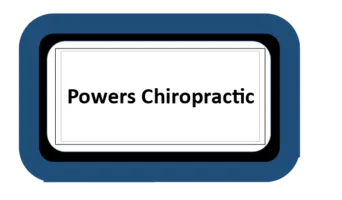The Pain of Clinical Depression
- Created in Newsletter Library, Chronic Conditions
Many of us think of depression as a psychological condition. The causes of depression are sought in the person's childhood or in her personal circumstances as an adult. But within the last 10 or 20 years depression is increasingly being evaluated within a physiological context. Various disease states and physical disorders are being recognized as important contributors to depression. This viewpoint is empowering to persons with depression and often provides a way forward when progress has been minimal or absent.
Those with depression experience both physical and psychological pain. It is well-documented that chronic physical pain can lead to depression. Also, it is well-known that depressive states can cause physical pain. A feedback loop (vicious circle) is often created in which physical pain makes a person's depression worse and the person's depression makes the physical pain worse.
In addition, changes in brain physiology may cause a person to be depressed. In other words, abnormal electrical activity in the brain - which, of course, is not under the person's conscious control - may result in depression. The brain's electrical activity is evaluated by a method known as quantitative EEG (QEEG).1 For those with clinical depression, the QEEG often demonstrates too much slow-wave activity in the left front brain (prefrontal cortex) and too much fast-wave activity in the right prefrontal cortex.
For those with clinical depression, the light of the world is considerably dimmed. The mood of a depressed person is low and he loses interest in normally pleasurable activities. Depressive disorders interfere with a person's work and/or school activities, family life and social life, and overall health. Lack of energy, lack of appetite, and decreased physical activity are all associated with clinical depression.
An access to relieving chronic depression may be found in encouraging the person to begin to engage in physical activity.2,3 Such activity may be difficult for those who are severely depressed, and yet all persons with depression should be presented with this form of therapy.
Additionally, chiropractic care may be of great benefit for those with clinical depression. The pain relief and improved musculoskeletal function afforded by chiropractic care may help reduce the physical component of ongoing depression.
1Hargrove JB, et al: Quantitative electroencephalographic abnormalities in fibromyalgia patients. Clin EEG Neurosci 41(3):132-139, 2010
2Gill A, et al: Clinical Inquiries: Does exercise alleviate symptoms of depression? J Fam Pract 59(9):530-531, 2010
3Uebelacker LA, et al: Hatha yoga for depression: critical review of the evidence for efficacy, plausible mechanisms of action, and directions for future research. J Psychiatr Pract 16(1):22-33, 2010
Locations
Find us on the map
Office Hours
After Hours call (715) 824-2040
Plover Office
Monday:
8:30 am-12:00 pm
1:30 pm-5:00 pm
Tuesday:
8:30 am-12:00 pm
1:30 pm-5:00 pm
Wednesday:
8:30 am-12:00 pm
1:30 pm-5:00 pm
Thursday:
8:30 am-12:00 pm
1:30 pm-5:00 pm
Friday:
8:30 am-12:00 pm
1:30 pm-5:00 pm
Saturday:
Closed
Sunday:
Closed
